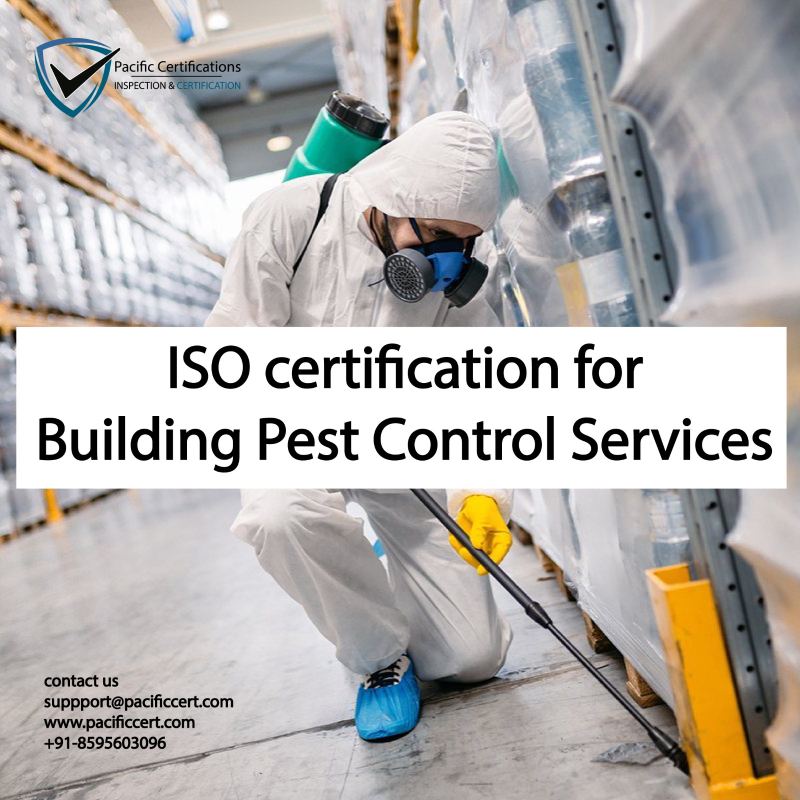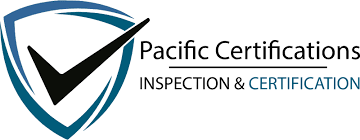ISO Certifications for Building Pest Control Services, Requirements and Benefits

Introduction
Pest control services are essential in residential, commercial, and industrial facilities. From preventing infestations in schools and offices to maintaining hygiene in hospitals and food factories, the role of this industry cannot be overstated. The global pest control market was valued at around USD 22 billion in 2022 and is projected to surpass USD 30 billion by 2030, growing at nearly 5% CAGR. Key drivers include urbanization, stricter food safety regulations, and increased awareness of hygiene after the COVID-19 pandemic.
At the same time, service providers face very practical challenges. The use of chemicals can put workers at risk if not handled properly. Clients are more aware than ever about hygiene and sustainability. Governments have tightened rules around environmental safety and food protection. ISO certifications provide a structured way for pest control companies to address these issues by putting quality systems in place, focusing on safety, and showing accountability to clients and regulators.
For pest control businesses, certifications are less about paperwork and more about protecting people, property, and the environment.
To start your certification process, contact us at [email protected]!
Applicable ISO standards for Building Pest Control Services companies
ISO 9001:2015 - Quality Management Systems:
This standard helps organizations demonstrate their ability to consistently provide products and services that meet customer and regulatory requirements. It can help Pest Control Services companies in ensuring customer satisfaction, continuous improvement, and compliance with applicable regulations.
ISO 14001:2015 - Environmental Management Systems:
This standard provides a framework for organizations to manage their environmental responsibilities effectively. Pest Control Services companies can use ISO 14001 to minimize the environmental impact of their operations, such as the use of pesticides and waste management.
ISO 45001:2018 - Occupational Health and Safety Management Systems:
This standard focuses on providing a safe and healthy workplace for employees and other stakeholders. Pest Control Services companies can use ISO 45001 to identify and manage occupational health and safety risks associated with their activities.
ISO 22000:2018 - Food Safety Management Systems:
Pest Control Services companies that specialize in food-related pest control may find ISO 22000 beneficial. This standard helps ensure the safety of food products by addressing hazards in the food chain, including pest contamination.
ISO 27001:2022 - Information Security Management Systems:
While not directly related to pest control, this standard can be relevant for Pest Control Services companies that handle sensitive information, such as customer data or proprietary information. ISO 27001 helps organizations manage and protect their information assets.
ISO 21010:2007 - Guidelines for the inspection of services in urban pest management:
This standard provides guidelines for the inspection of urban pest management services, including the inspection of buildings and other structures for pest infestations.
By implementing these ISO standards, Building Pest Control Services companies can demonstrate their commitment to quality, environmental sustainability, occupational health and safety, and customer satisfaction. This can lead to improved credibility, increased customer trust, and enhanced competitiveness in the market.
Click here to find out more applicable standards to your industry
What are the requirements of ISO certifications for Building Pest Control Services?
To achieve ISO certification, pest control companies must move beyond informal practices and establish structured systems that are transparent and auditable. The main requirements include:
Scope definition: Companies must define whether they serve residential, commercial, industrial, or food sector clients, and outline the exact services offered.
Policy setting: Clear policies must be in place for quality, chemical handling, environmental care, and worker health and safety. These policies act as the foundation for certification.
Risk assessments: Regular risk evaluations are needed to identify potential hazards, from chemical spills to contamination risks in food facilities.
Documented procedures: Treatment methods, equipment handling, waste disposal, and emergency responses should all be formally recorded. This creates accountability and consistency across teams.
Training programs: Staff need structured training on pesticide safety, use of protective equipment, safe storage, and customer communication.
Record keeping: Service logs, inspection results, incident reports, and corrective actions must be documented and retained for audits.
Monitoring performance: Companies must track indicators such as service success rates, accident frequency, customer complaints, and compliance levels.
Internal audits: Periodic internal audits and management reviews are required to test system effectiveness and drive improvements.
Tip: Pest control companies should begin with ISO 9001 for quality and ISO 45001 for safety. Once those systems are established, ISO 14001 and ISO 22000 can be added to cover environmental and food safety compliance.
What are the benefits of ISO certifications for Building Pest Control Services?
ISO certifications offer tangible advantages not only in compliance but also in customer trust and operational safety. Some of the key benefits include:
Documented processes reduce errors and give clients confidence that treatments will be carried out consistently across sites.
Certification enforces structured rules for chemical handling and equipment use, lowering the risk of workplace accidents.
Meeting ISO standards makes it easier to align with public health laws, pesticide regulations, and environmental controls.
For clients in food production or storage, ISO 22000 and HACCP provide reassurance that pest control is handled to international safety standards.
Better planning and monitoring reduce waste of pesticides and optimize resource use, lowering long-term costs.
Certified companies often secure larger contracts, particularly with healthcare providers, governments, and global food chains.
Structured record-keeping makes it easier to pass regulatory inspections and client audits without disruption.
The pest control market is evolving in several directions. Eco-friendly solutions are growing rapidly, with biological controls and non-toxic methods increasingly preferred over chemical-heavy treatments. According to recent surveys, more than 40% of commercial clients now ask for “green pest management” options.
Technology adoption is also accelerating. Remote monitoring systems, IoT-enabled traps, and predictive analytics are being used to manage pest populations more efficiently. This trend increases the relevance of ISO 9001 for structured processes and ISO/IEC 27001 for securing digital data from smart systems.
Urban expansion and climate change are further broadening the range of pest problems worldwide. Warmer temperatures have led to increased infestations of insects in regions where they were previously less common. With food safety remaining a global priority, certifications like ISO 22000 and HACCP are becoming an expectation rather than an option for pest control providers working in food and hospitality.
How Pacific Certifications can help
We at Pacific Certifications offer independent auditing and certification services tailored to the pest control sector. We help companies establish systems that meet international standards and comply with regulatory requirements.
With Pacific Certifications, your business can:
Get certified for ISO 9001, ISO 45001, ISO 14001, ISO 22000, and HACCP.
Align with safety, quality, and environmental best practices.
Strengthen your ability to secure long-term contracts in food, healthcare, and corporate sectors.
Rely on accredited certification that is trusted globally.
Overall, ISO certification for your Building Pest Control Services can lead to positioning your business for long-term success and competitiveness in the industry.
If you need support with ISO certification for your Building Pest Control business, please contact us at [email protected] or +91-8595603096.
Ready to get ISO certified?
Contact Pacific Certifications to begin your certification journey today!
Author: Ashish
Suggested Certifications:
Read more: Pacific Blogs
